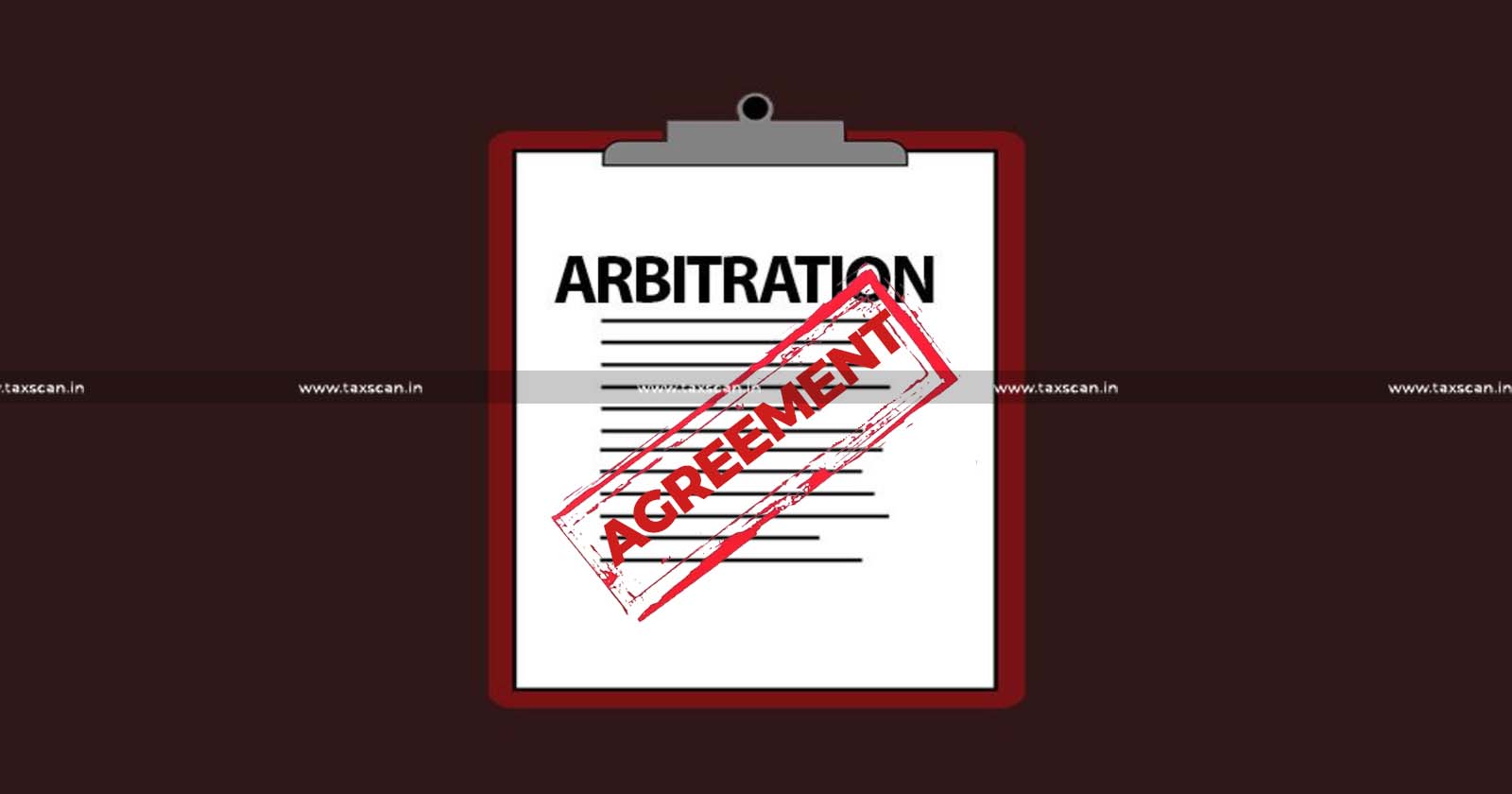Arbitration Agreement Versus Arbitration Under MSMED ACT

Arbitration – Agreement Versus Arbitration – Under MSMED ACT – TAXSCAN
Arbitration – Agreement Versus Arbitration – Under MSMED ACT – TAXSCAN
Introduction
Micro Small and Medium Enterprises has been the key focus area for the Indian Government and day in day out many reforms are being explored to bring benefits and privileges to such entities. In the year 2006, a regulatory reform namely ‘Micro Small and Medium Enterprises Development Act, 2006’ (hereinafter referred to as the ‘MSMED Act’) was introduced with the main objective to provide for facilitating the promotion and development, and enhancing the competitiveness of micro, small and medium enterprises and for matters connected therewith or incidental thereto. To foster such objective of the MSMED Act and to safeguard the interest of the entities of such nature from the pro-long litigation w.r.t recovery of amount for the goods and services provided, an alternate provision was introduced in the MSMED Act providing for the legal recourse wherein any MSME may refer such recovery matters to the MSE Facilitation council (MSEFC) and request to conciliate or arbitrate. Prima facie, it seems that the provisions of MSMED Act is in complete sync with the provisions of Arbitration and Conciliation Act, 1996 (hereinafter referred to as ‘Arbitration Law’) but the real controversy arises in the case where there already exists an agreement for arbitration between the parties. In such scenario, the point of question of law is ‘Whether the provisions of MSMED Act will prevail over the Arbitration Agreement entered into between the parties?’
In this article, an endeavor has been made to discuss two different school of thoughts over the issue mentioned above and to make you understand how to proceed in such matters.
Relevant Provisions of MSMED Act
18. Reference to Micro and Small Enterprises Facilitation Council-
“(1) Notwithstanding anything contained in any other law for the time being in force, any party to a dispute may, with regard to any amount due under section 17, make a reference to the Micro and Small Enterprises Facilitation Council….”
First school of thought-
The Non-obstante clause of Section 18 of the MSMED Act is not anywhere including the word “agreement” unlike in case of Section 16 of MSMED Act which is clearly expressing. This contemplates that the provisions of Section 18 do not in any manner overrides the arbitration agreement and therefore, referring MSEFC in case where arbitration agreement exists, is not allowed. The reference u/s 18 of the MSMED Act can be made only in those cases where there is no existence of Arbitration Agreement between the parties. Since, both the laws are special in nature and therefore must be given special treatment. And further, it is also pertinent to note here that an agreement happens only with the consent of the parties to it, therefore in general sense when a party has agreed to have the prescribed manner of conducting arbitration through independent body of arbitrators, the recourse provided under MSMED Act for having arbitration through MSEFC, if chosen by same parties will not hold water.
Second school of thought-
The purpose of the MSMED Act is to include stringent provisions to provide dispute resolution mechanism for resolving the disputes of non-payment of dues to the micro and small enterprises also. If you read the provisions of Section 18 of the MSMED Act, it nowhere contemplates that the provisions stipulated therein is subject to any agreement or contract which inter alia signifies that Section 18 has to be read in an independent manner itself. Further, in depth reading of the provisions of Section 18(2) & (3) of the MSMED Act, it also clearly indicates that the respective provisions of Arbitration Law shall mutatis mutandis apply to the conciliation and arbitration happening before MSEFC, which implicates that the legislature was having complete idea about the controversy that may arise in future between these two laws. Further, if we talk about the special nature of both the laws, it is to be understood that the MSMED Act has been introduced later and since the provision of Section 24 of such act clearly states that it shall have over-riding effect over any other law in case of inconsistency, then such arbitration and conciliation before MSEFC is completely valid and shall not get hampered due to any arbitration agreement invoking arbitration law.
Judgement of Hon’ble Supreme Court in Silpi Industries V. Kerala State Road Transport Corporation & Anr. etc.
In the aforesaid judgement, the Hon’ble Supreme Court has categorized the Arbitration Law and MSMED Act as General law and Special Law respectively and clearly worded that even if there is an agreement between the parties for resolution of disputes by arbitration, if a seller is covered by Micro, Small and Medium Enterprises Development Act, 2006, the seller can certainly approach the competent authority to make its claim. If any agreement between the parties is there, same is to be ignored in view of the statutory obligations and mechanism provided under the 2006 Act.
Observation and Judgement of Hon’ble Supreme Court in Gujarat State Civil Supplies Corporation Ltd Versus Mahakali Foods Pvt. Ltd. [Combined Appeal]
A private agreement between the parties cannot obliterate the statutory provisions. Once the statutory mechanism under sub-section (1) of Section 18 is triggered by any party, it would override any other agreement independently entered into between the parties, in view of the non obstante clauses contained in sub-section (1) and sub-section (4) of Section 18.
Further, it is also significant to note that a deemed legal fiction is created in the Section 18(3) by using the expression ‘as if’ for the purpose of treating such arbitration as if it was in pursuance of an arbitration agreement referred to in sub-section (1) of Section 7 of the Arbitration Act, 1996. Further, reference was given to the decision held in K. Prabhakaran v. P. Jayarajan, a legal fiction presupposes the existence of the State of facts which may not exist and then works out the consequences which flow from that state of facts. Thus, considering the overall purpose, objects and scheme of the MSMED Act, 2006 and the unambiguous expressions used therein, this court has no hesitation in holding that the provisions of Chapter-V of the MSMED Act, 2006 have an effect overriding the provisions of the Arbitration Act, 1996.
Conclusion
From the above discussion and reference to the apex court judgement it is quite clear that the intent of the legislature while framing of the provisions of the MSMED Act and its introduction is very clear and in no manner the same shall be folded in any manner which defeats or hit the benefits being given to MSMEs under this particular law. It is an appreciating decision of the Hon’ble Supreme Court which has upheld the prime-most thing of the MSMED Act i.e. the speedy and effective dispute resolution. If this would have been a reversed observation, the very purpose of the MSMED Act would have got defeated just by insertion of a two-liner arbitration clause, which is usually a trendy practice while drafting of any agreements or contracts.
In case of any query, you may reach the author at santosh@spcounsels.com

CS Santosh Pandey is a Company Secretary Practicing in New Delhi. He can be reached at info@spcounsels.com
Support our journalism by subscribing to Taxscan premium. Follow us on Telegram for quick updates


